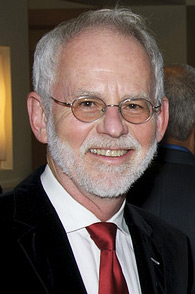Psychology is the study of mind and behavior. Its subject matter includes the behavior of humans and nonhumans, both conscious and unconscious phenomena, and mental processes such as thoughts, feelings, and motives. Psychology is an academic discipline of immense scope, crossing the boundaries between the natural and social sciences. Biological psychologists seek an understanding of the emergent properties of brains, linking the discipline to neuroscience. As social scientists, psychologists aim to understand the behavior of individuals and groups.

The American Psychological Association (APA) is the main professional organization of psychologists in the United States, and the largest psychological association in the world. It has over 157,000 members, including scientists, educators, clinicians, consultants, and students. It has 54 divisions—interest groups for different subspecialties of psychology or topical areas. The APA has an annual budget of around $125 million.
School psychology is a field that applies principles from educational psychology, developmental psychology, clinical psychology, community psychology, and behavior analysis to meet the learning and behavioral health needs of children and adolescents. It is an area of applied psychology practiced by a school psychologist. They often collaborate with educators, families, school leaders, community members, and other professionals to create safe and supportive school environments.
Robert Edward Slavin was an American psychologist who studied educational and academic issues. He was known for the Success for All educational model. Until his death, he was a distinguished professor and director of the Center for Research and Reform in Education at Johns Hopkins University.
The critical incident technique is a set of procedures used for collecting direct observations of human behavior that have critical significance and meet methodically defined criteria. These observations are then kept track of as incidents, which are then used to solve practical problems and develop broad psychological principles. A critical incident can be described as one that makes a contribution—either positively or negatively—to an activity or phenomenon. Critical incidents can be gathered in various ways, but typically respondents are asked to tell a story about an experience they have had.

Science, technology, engineering, and mathematics (STEM) is an umbrella term used to group together the distinct but related technical disciplines of science, technology, engineering, and mathematics. The term is typically used in the context of education policy or curriculum choices in schools. It has implications for workforce development, national security concerns, and immigration policy, with regard to admitting foreign students and tech workers.

Roy D. Pea is David Jacks Professor of Learning Sciences and Education at the Stanford Graduate School of Education. He has extensively published works in the field of the Learning Sciences and on learning technology design and made significant contributions since 1981 to the understanding of how people learn with technology.

Palo Alto University (PAU) is a private university in Palo Alto, California that focuses on psychology and counseling. It was founded in 1975 as the Pacific Graduate School of Psychology and became Palo Alto University in 2009.
Debriefing is a report of a mission or project or the information so obtained. It is a structured process following an exercise or event that reviews the actions taken. As a technical term, it implies a specific and active intervention process that has developed with more formal meanings such as operational debriefing. It is classified into different types, which include military, experiential, and psychological debriefing, among others.

The McCourt School of Public Policy is one of ten constituent schools of Georgetown University. The McCourt School offers master's degrees in public policy, international development policy, policy management, data science for public policy, and policy leadership as well as administers several professional certificate programs and houses fifteen affiliated research centers. The McCourt School has twenty-one full-time faculty members, ten visiting faculty members, more than one-hundred adjunct faculty members and approximately 450 enrolled students across the various degree and executive education programs.
Adler University is a private university, with two campuses in North America. The university's flagship campus is in Chicago, Illinois, and its satellite campus is located in Vancouver, British Columbia. The university also offers online classes and degree programs online for both masters and doctoral students.
John Clemans Flanagan, was a noted psychologist most known for developing the critical incident technique, which identifies and classifies behaviors associated with the success or failure of human activity. He was a pioneer of aviation psychology. During World War II Flanagan was commissioned by the U.S. Army Air Forces in 1941 to head an aviation psychology program that developed tests to help identify pilots suitable for combat missions.

Project Talent is a national longitudinal study that first surveyed over 440,000 American high school students in 1960. At the time, it was the largest and most comprehensive study of high school students ever conducted in the United States. Designed by American Institutes for Research founder John C. Flanagan, Project Talent was intended as “the first scientifically planned national inventory of human talents.” Students from 1,353 schools across the country participated in two full to four days of testing. Fifty years later, the data is still widely used in multiple fields of study and follow-up studies are underway with original participants.

Jamie Merisotis is the current president and CEO of Lumina Foundation, a private organization in the United States that aims to increase the number of Americans holding high-quality degrees, certificates, and credentials to 60% by 2025. With an endowment of $1.6 billion, Merisotis leads the foundation's efforts towards this goal.
The College of Education is one of 15 colleges at The Pennsylvania State University, located in University Park, PA. It houses the departments of Curriculum and Instruction, Education Policy Studies, Learning and Performance Systems, and Educational Psychology, Counseling, and Special Education. Almost 2,300 undergraduate students, and nearly 1,000 graduate students are enrolled in its 7 undergraduate and 16 graduate degree programs. The college is housed in four buildings: Chambers, Rackley, Keller, and CEDAR Buildings.

Ruth Kanfer is a psychologist and professor at Georgia Institute of Technology in the area of Industrial and Organizational Psychology. She is best known for her research in the fields of motivation, goal setting, self-regulation, job search, adult learning, and future of work. Kanfer has received numerous awards for her research contributions including the American Psychological Association Distinguished Scientific Award for an Early Career Contribution in Applied Research in 1989, the Society for Industrial and Organizational Psychology (SIOP) William R. Owens Scholarly Achievement Award in 2006 and the SIOP Distinguished Scientific Contributions Award in 2007. Ruth Kanfer has authored influential papers on a variety of topics including the interaction of cognitive abilities and motivation on performance, the influence of personality and motivation on job search and employment. and a review chapter on motivation in an organizational setting.
Higher education in the United States is an optional stage of formal learning following secondary education. Higher education, also referred to as post-secondary education, third-stage, third-level, or tertiary education occurs most commonly at one of the 4,360 Title IV degree-granting institutions, either colleges or universities in the country. These may be public universities, private universities, liberal arts colleges, community colleges, or for-profit colleges. US higher education is loosely regulated by several third-party organizations.
Charles Egerton Osgood was an American psychologist and professor at the University of Illinois. He was known for his research on behaviourism versus cognitivism, semantics, cross-culturalism, psycholinguistic theory, and peace studies. He is credited with helping in the early development of psycholinguistics. Charles Osgood was recognized distinguished and highly honored psychologist throughout his career.

Ross A. Thompson is an American author and research psychologist. He is Distinguished Professor Emeritus of psychology at the University of California, Davis, and is director of the Social & Emotional Development Lab. Thompson is known for his work on the psychological development of young children. His influences on developmental research and public policy were recognized in the Urie Bronfenbrenner Award for Lifetime Contribution to Developmental Psychology in the Service of Science and Society in 2018 by the American Psychological Association, the Ann L. Brown Award for Excellence in Developmental Research in 2007. Thompson received the Distinguished Lifetime Achievement from Zero to Three in 2023.
Debra Rowe is a professor at Oakland Community College in Oakland County, Michigan, who has taught classes in energy management, renewable energy, and psychology. Much of her work explores the role of community colleges and other higher education institutions as leaders in educating a population and a workforce that can support the development of a green economy and meet sustainability goals.








